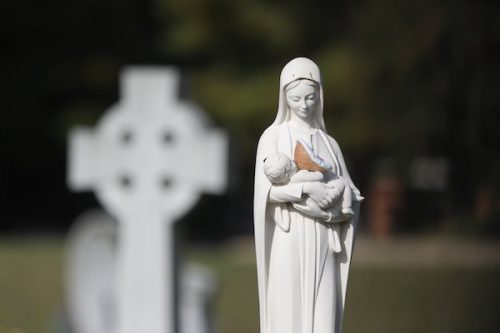A plenary indulgence, applicable only to the dead, can be acquired only once on Nov. 1 or Nov. 2. The conditions to gain this plenary indulgence are:
- A visit to a church or public oratory — and in semipublic oratories by those who have the right to use them.
- The work prescribed for acquiring a plenary indulgence connected with a church or oratory consists in a devout visit during which the Lord’s Prayer and the Creed are recited.
- In addition to visiting a church or oratory and reciting the Lord’s Prayer and the Creed, three conditions must be fulfilled to gain the plenary indulgence.
a. Sacrament of reconciliation;
b. Holy Communion;
c. Prayers for the intention of the pope.
It is further required that all attachments to sin, even to venial sin, be absent.
- The three conditions may be fulfilled several days before or after the performance of the prescribed work (a week before or after the work); nevertheless, it is fitting that Communion be received and the prayers for the intentions of the pope be said the same day the work is prescribed.
- The condition of praying for our Holy Father’s intentions is fully satisfied by reciting one Our Father and one Hail Mary; nevertheless, the individual faithful are free to recite any other prayer according to their own piety and their devotion to the Holy Father.
The norms listed above are according to the listing in the apostolic constitution, “Indulgentiarum Doctrina.”
What’s an indulgence?
Canon 992 of the Catholic Church’s Code of Canon Law states: “An indulgence is a remission before God of the temporal punishment for sin, the guilt of which is already forgiven.” This is done “under certain and definite conditions with the help of the Church which … dispenses and applies authoritatively the treasury of the satisfactions of Christ and the saints.” If all punishment is remitted, the indulgence is described as “plenary.” If only part is remitted, it is called “partial.”
— CNS Stylebook on Religion
Photo: A statue of Mary and the Christ Child is pictured in a cemetery. Catholics observe the back-to-back feasts of All Saints’ Day and All Souls’ Day Nov. 1 and Nov. 2. (CNS photo/Bob Roller)






















